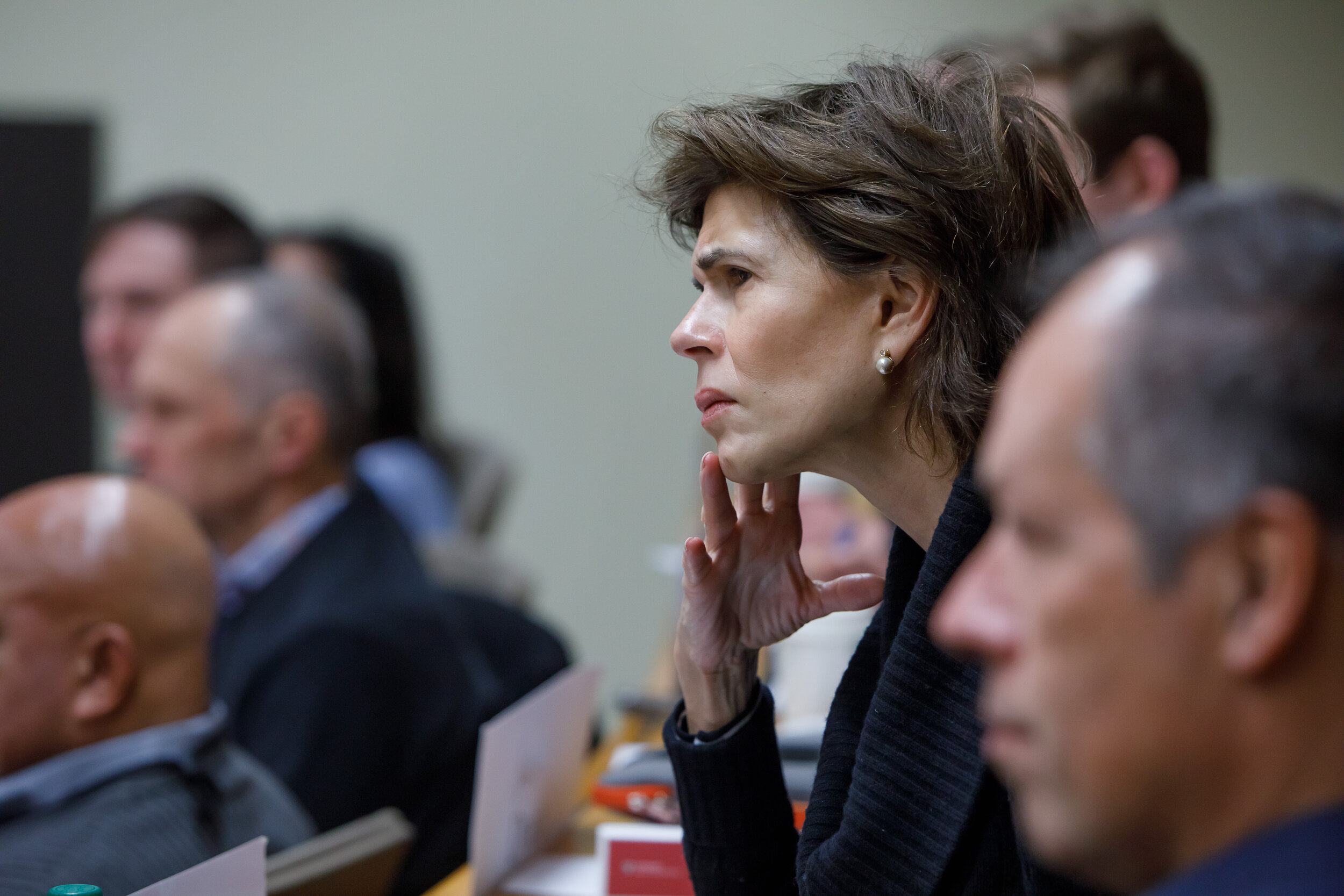Cristiana Chamorro fights for democracy in Nicaragua
As an opposition leader in Nicaragua, Cristiana Chamorro has worked tirelessly to defend free and fair elections in her country. Last month, however, the 2018 ALI Fellow’s campaign hit a major roadblock when she was arrested in an apparent attempt to halt her candidacy in the presidential election. The arrest on multiple charges, including money laundering and mismanagement, came a day after Chamorro announced her intention to seek the nomination of the Citizen’s Alliance, an opposition party.
The arrest was denounced by the U.S. Government, the European Union, the Organization of American States (OAS), the United Nations High Commissioner on Human Rights. It has received widespread media coverage including through BBC and the Washington Post.
It comes as Nicaragua is “heading for the worst possible elections,” according to the OAS, of which Nicaragua is a member, calling the move a violation of the OAS charter. Invoking a law passed in December that allows the government the right to ban candidates deemed “traitors,” the prosecution is demanding that Chamorro be barred from participating in the November election.
Before her arrest, the 67-year-old journalist was considered by the opposition as its best hope to defeat President Daniel Ortega as he runs for a fifth term. Her mother, Violeta Chamorro, had defeated Ortega in 1990, becoming Latin America’s first woman president—Ortega regained the presidency in 2007. Her father, a crusading journalist who had spoken out against the Somoza regime, was assassinated in 1978, after which Chamorro joined his newspaper La Prensa, ultimately becoming its editor and vice president. Until stepping down last year, Chamorro also led the nonprofit Violeta Barrios de Chamorro Foundation, dedicated to freedom of the press.
Her ongoing efforts are widely seen as vital for her country – and for democracy in Latin America. “Cristiana Chamorro's struggle for freedom reminds us that democracy is the only method by which to participate in government without violence,” said Beatriz Merino, the former Prime Minister of Peru and a 2018 ALI colleague. “Transparency and democracy are the only mechanisms to avoid authoritarianism.”
In the past month, at least 20 other prominent Nicaraguans, including Chamorro’s brother, have also been arrested on apparently political charges. While mass protests have filled the streets in response to Ortega’s increasingly authoritarian regime, the government has suppressed dissent through legal maneuvers, including press censorship and the closure of the Chamorro Foundation.
Members of the Harvard community expressed deep concern about the situation. “Cristiana’s commitment to democratic ideals and improving the lives of her fellow citizens through the Chamorro Foundation has been an inspiration to many,” said Meredith Rosenthal, Faculty Chair of the Harvard Advanced Leadership Initiative (ALI) which Chamorro joined in 2018.
“Anybody concerned with human rights should worry about the rise and increasing shamelessness of authoritarian regimes around the world,” said Mathias Risse, Director of the Carr Center for Human Rights Policy and Professor in Human Rights, Global Affairs, and Philosophy at the Kennedy School. “To work with a thought formulated by Martin Luther King Jr., oppression anywhere comes with the threat of oppression everywhere, if only because authoritarian regimes copy each other’s playbooks.”
“I joined the board of the Carr Center for Human Rights because I have a lifelong concern for those who are subject to extremely asymmetrical power structures where oppressive regimes or economic imbalances deprive people of their basic rights,” said Michael Decker, Carr Center advisory board member and another of Chamorro’s 2018 ALI colleagues. “Little did I know, this would become a personal issue involving our highly respected friend and ALI colleague Crisitiana Chamorro.
As Alfonso Carrillo, Carr Center advisory board member, Guatemalan lawyer, and 2015 ALI Fellow notes, “The world is changing, and every day the attacks against democracy are a more significant threat and closer to us. Alone we cannot do much; together, as a society, we can stop abuses and enact change as citizens of the world,” he said.
“Today, Cristiana and the victims of the government of Ortega in Nicaragua need our help.”

